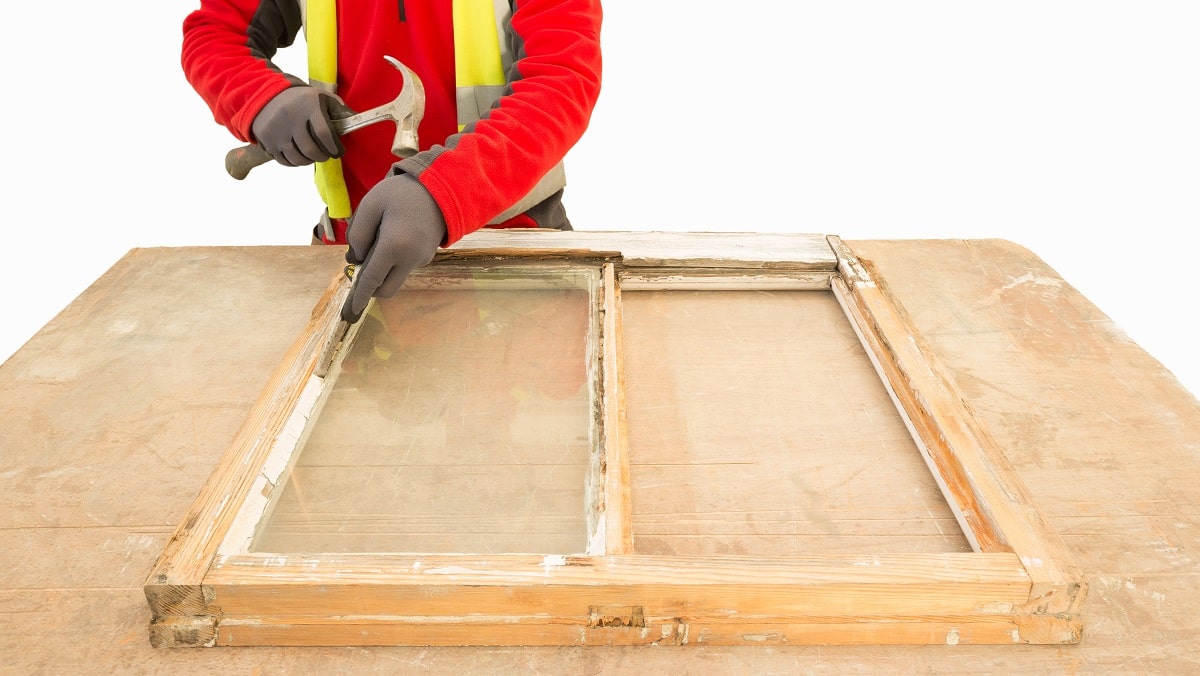What is a Home Renovation?
On average, you spend 5.5 hours of every day inside your home… and it should be a place where you feel safe, secure and comfortable. It should be an extension of your lifestyle, an expression of who you are. It should reflect who you want to be. You shouldn’t have to sacrifice these things to live in a beautiful home that will last for years to come.
A home renovation is the key to unlocking the potential of your property and making it more liveable, relevant and saleable. The average homeowner in the UK invests thousands in home renovations, with a majority saying their house has greater appeal after undertaking said improvements.
When it is time to renovate your home, most homeowners don’t know where to start. Many people are misinformed about the difference between renovation and remodeling. Both are important, but for different reasons nonetheless.
Let’s begin by understanding the difference between renovation and remodeling.
What is the difference between a renovation and remodel?
Both are terms used to describe the process of improving or updating an existing structure, however, there are subtle differences between what a renovation and remodel entail.
A renovation is the renewal or restoration of a building, work of art, etc., while a remodel is a more superficial change. In general, the word “remodel” is used for smaller changes (such as kitchen remodeling), while “renovation” is used for larger scale projects.
A renovation, due to a developer or owner’s desire to modernise an outdated layout or decorate with the latest styles, might involve tearing down walls, removing or bypassing services such as plumbing or electrical, and/or replacing external features such as windows or roofing.
Renovations are designed to extend a property’s lifespan. In these renovation projects, the interior structure of your home is maintained and original finishes are preserved.
In a remodel, all or part of the structure is demolished, and rebuilt to suit your needs. When you ‘rebuild’ a room, you’re really creating something completely new that may or may not be different than what was there before, which is why it’s good to have clear definitions of what actually constitutes each.
We suggest planning which option is best for you based on the scope of your project before you begin the process.
Where Should You Focus Your Home Improvement Efforts?
There’s more to home renovation than just personal preferences and interior decoration. If you’re planning on selling your house, you may be wondering which areas are worth investing in and which ones bring little to no payoff.
Which Home Improvements Add Value to Your Property?
The renovation of a property is among the best opportunities to increase its value. Not only are you improving the house, but you might also get an extension, double-glazing or a conservatory to increase your living space as well. Below are some types of home improvements that add value to your property.
Minor kitchen remodel
A minor kitchen remodel can add value to your property because it adds functionality that was missing. This improvement makes the space more desirable to buyers which can raise the selling price, and thus increase your return on investment.
Minor improvements like this are often overlooked by investors who tend to focus on larger home renovations, but they are among the easiest and most important projects you can take on. Plus, many buyers are unable or unwilling to purchase a home that needs significant work and prefer something move-in ready.
Window replacement
With double glazing, it isn’t hard to see why window replacement can increase property value. Winter time arrives and the winds are fierce, but you’re protected with better insulation and energy efficiency. Simultaneously, your home gains a whole new lease on life with an updated aesthetic appeal.
Using window replacement professionals like Ace Sash Windows can save you money on heating and cooling costs, increase the lifespan of your home, and improve security.
Deck, patio, or porch addition
Adding a deck, patio, or porch is a great way to add value and square footage to a property without the hassle and cost of building an extra room. Whether you install the original or replace the existing one, adding a deck, patio or porch can be one of the most valuable investments you make.
An attractive outside entertaining area can create an instant attraction drawing in potential buyers.
Entry door replacement
An entry door replacement can add value to your property. The entry section of your home is the first thing that people see. It’s where you greet guests and visitors, where they place their belongings, and what sticks in their heads when they leave.
Roof replacement
Roof replacement is an investment in your home’s future. Replacing your roof has two purposes; to keep the rain out and to return your home to its original glory.
A new roof provides you with a higher level of protection from the elements, helps maintain the life and durability of other structural components of the home, and greatly increases the appeal of your home as well as its overall value.
Adding stone veneer
There’s no question stonework is a classic, timeless addition to any style of home. But it also adds value. Stone veneer or blockwork offers the best protection against wear and tear, and acts as an excellent sound barrier.
And with an excellent thermal efficiency factor, stone veneer also helps maintain heat. So if you’ve been considering adding stone to your home – but putting it off because you think it will cost too much – now is a great time to invest in a timeless material that is sure to add long-term value.
Basic updates like paint, minor fixes, and fixture replacements
Basic home updates add value to a property. They improve its aesthetics, which can help it sell faster. In fact, most buyers are motivated by looks; people consider curb appeal when shopping for a new home.
Which Home Improvements Don’t Add Value to Your Property?
When it comes to improving your home, not all improvements are created equal. The ones that boost the value of the property are the ones that come with a significant return on investment (ROI). There are many ways to improve your home, but some will be more likely to give you a better ROI than others.
It’s always good to know which ones don’t add value or are even expected to decrease the value in your home. Here’s a list of home improvements that don’t add value.
Swimming Pools
A swimming pool tends to be what we call a ‘distractor’- it can be attractive and beautiful but it distracts buyers away from focusing on other important features of the home.
A pool is more likely to be a liability than an asset. Homes with pools are more likely to suffer from property damage due to leaky windows or faulty heating systems. In addition, pool maintenance accounts for more than half of the expenses related to having one.
Texture on the Walls and Ceilings
It’s long been a myth that adding texture to a wall or ceiling will increase the value of a property. This simply isn’t true. Some of the most expensive properties have smooth, white walls and ceilings. Textured walls will not add value to your property. It may look modern which is a bonus but it won’t add value!
Quirky Tiling
If you’re hoping to add a quirky touch to your home by installing random mosaic tiles on your kitchen floor, think again. Majority don’t consider a kitchen renovation worthy of an appeal if they did not like the finish, even though it does not affect the safety or comfort of the property.
Too Much Carpeting
If you want to increase the value of your home, you might want to remove some of the carpeting. Also, you may also benefit from using a marble or granite countertop. You should also consider installing hardwood floors when renovating your home.
Combining Bedrooms to Create a Bigger Room
A comparison of building costs for adding a room in different locations shows that adding square footage either side of the lobby is a waste of money. The next best extra bedroom to add would be an attic conversion as it will give you extra square feet than combining two bedrooms to make a bigger one would. What makes the most sense is to add the smallest amount of area that maximises your return on investment.
Conclusion
Whether you want to add a new extension to your home or you’re looking to modernise your bathroom, kitchen or garage, property renovation could be right for you. Property renovations can help bring old and tired-looking rooms in your home up to date. Renovations can also give you an opportunity to increase the value of your home if you choose to sell it at a later date.
Before you renovate your house, consider what the competition in your area is doing. You should carefully consider the local renovation trends to design a better home than your competition. Preparation for competition is key to increasing the appeal of your property.
Taking out adequate insurance before starting a renovation project is also vital. With so much at stake, you don’t want to risk losing your renovating investment, particularly not when a financial liability could arise from your incomplete or inadequate home renovation project. It will save you time and money if disaster strikes.




